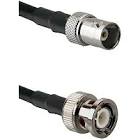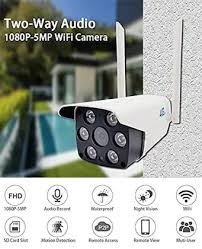When it comes to setting up a comprehensive security system for your home or business, one of the key components to consider is the CCTV wire. CCTV wires play a crucial role in ensuring that your surveillance cameras are connected and functioning properly to provide round-the-clock monitoring and recording of activities.
There are different types of CCTV wires available in the market, each designed for specific purposes and environments. The most common types include coaxial cables, twisted pair cables, and fiber optic cables. Coaxial cables are widely used for transmitting video signals from the camera to the recording device with minimal interference. Twisted pair cables are known for their ability to transmit data over long distances without signal degradation. Fiber optic cables, on the other hand, offer high-speed data transmission and are immune to electromagnetic interference.
When selecting a CCTV wire for your surveillance system, it is essential to consider factors such as the distance between the camera and recording device, environmental conditions, and required data transmission speed. Choosing the right type of CCTV wire will ensure optimal performance and reliability of your security system.
In addition to selecting the appropriate type of CCTV wire, it is also important to ensure proper installation and maintenance of the wiring infrastructure. Proper cable management techniques should be employed to prevent tangling or damage to the wires, which can affect the functionality of the surveillance system.
Overall, investing in high-quality CCTV wires is essential for building a robust security system that provides effective monitoring and protection against potential threats. By choosing the right type of CCTV wire and maintaining it properly, you can enhance the security of your premises and have peace of mind knowing that your property is well-protected.
8 Key Advantages of Quality CCTV Wiring for Enhanced Security and Performance
- Provides reliable connectivity between CCTV cameras and recording devices.
- Offers different types of cables to suit various installation needs and environments.
- Ensures high-quality video transmission with minimal interference.
- Allows for long-distance data transmission without signal degradation.
- Resistant to electromagnetic interference for stable video feed.
- Facilitates high-speed data transmission for real-time monitoring.
- Enhances security by enabling 24/7 surveillance of premises.
- Proper installation and maintenance can optimize the performance and longevity of the CCTV system.
Three Major Downsides of Wired CCTV Systems: Limited Range, Interference Vulnerability, and Complex Installation
Provides reliable connectivity between CCTV cameras and recording devices.
Ensuring reliable connectivity between CCTV cameras and recording devices is a crucial advantage of using CCTV wire. By providing a stable and secure connection, CCTV wire allows for seamless transmission of video signals, ensuring that all recorded footage is captured without interruptions or data loss. This reliable connectivity not only enhances the overall effectiveness of the surveillance system but also ensures that critical moments are captured accurately, enabling swift response to any security incidents. With CCTV wire facilitating consistent communication between cameras and recording devices, users can have confidence in the continuous monitoring and recording capabilities of their security setup.
Offers different types of cables to suit various installation needs and environments.
CCTV wire offers a distinct advantage by providing a range of cable options to cater to diverse installation requirements and environmental conditions. Whether it’s coaxial cables for standard installations, twisted pair cables for long-distance transmission, or fiber optic cables for high-speed data transfer, CCTV wire ensures that there is a suitable solution for every scenario. This flexibility in cable offerings allows users to customize their surveillance system according to specific needs, ensuring optimal performance and reliability in various environments.
Ensures high-quality video transmission with minimal interference.
The use of CCTV wire ensures high-quality video transmission with minimal interference, providing clear and uninterrupted footage for effective surveillance purposes. By using quality cables that are designed to minimize signal loss and external disturbances, CCTV systems can deliver sharp and detailed images, allowing for accurate monitoring and recording of activities. This pro of CCTV wire not only enhances the overall security measures but also ensures reliable performance in various environmental conditions, making it an essential component for any surveillance setup.
Allows for long-distance data transmission without signal degradation.
One of the key advantages of CCTV wires is their ability to facilitate long-distance data transmission without signal degradation. This means that surveillance cameras can be installed at considerable distances from the recording device without compromising the quality of the video feed. By using CCTV wires that are designed to maintain signal integrity over long distances, businesses and homeowners can ensure comprehensive coverage of their premises without worrying about loss of data or image quality. This feature makes CCTV wires an essential component in establishing a reliable and effective security system for monitoring activities over extended areas.
Resistant to electromagnetic interference for stable video feed.
One of the key advantages of CCTV wires is their resistance to electromagnetic interference, ensuring a stable video feed. This feature is crucial in maintaining the quality and reliability of surveillance footage by minimizing disruptions or distortions caused by external electromagnetic signals. With CCTV wires designed to resist such interference, users can have peace of mind knowing that their security system will consistently provide clear and uninterrupted video footage for effective monitoring and surveillance purposes.
Facilitates high-speed data transmission for real-time monitoring.
Facilitating high-speed data transmission for real-time monitoring is a significant advantage of CCTV wires. By utilizing CCTV wires designed for efficient data transfer, surveillance systems can provide real-time monitoring of activities happening in and around the premises. This capability allows for immediate detection of any suspicious behavior or security breaches, enabling prompt responses to ensure the safety and security of the monitored area. With high-speed data transmission facilitated by CCTV wires, users can rely on uninterrupted and timely access to live video feeds, enhancing the effectiveness of surveillance operations and overall security measures.
Enhances security by enabling 24/7 surveillance of premises.
The use of CCTV wire enhances security by enabling 24/7 surveillance of premises, ensuring constant monitoring and recording of activities. This continuous surveillance capability acts as a powerful deterrent against potential intruders or criminal activities, as the presence of surveillance cameras can significantly reduce the likelihood of security breaches. With CCTV wire in place, property owners can have peace of mind knowing that their premises are under constant watch, allowing for quick detection and response to any suspicious incidents that may occur.
Proper installation and maintenance can optimize the performance and longevity of the CCTV system.
Proper installation and maintenance of CCTV wires can significantly enhance the performance and longevity of the entire surveillance system. By ensuring that the wires are installed correctly and securely, you can minimize signal interference and disruptions, thereby improving the overall quality of video footage captured by the cameras. Regular maintenance checks on the CCTV wires can help identify any issues or potential problems early on, allowing for timely repairs or replacements to be made. This proactive approach not only ensures that the system operates at its full potential but also extends its lifespan, providing long-term security benefits for your property or business.
Limited transmission distance
One significant drawback of certain types of CCTV wires is their limited transmission distance. This limitation can pose a challenge when setting up surveillance systems in large areas or expansive properties. In such cases, the CCTV wire may not be able to effectively transmit video signals over long distances without experiencing signal degradation. To overcome this issue, additional equipment such as signal boosters or repeaters may be necessary to extend the transmission range and maintain the quality of the video feed. This added complexity and cost associated with addressing the limited transmission distance of CCTV wires can be a downside for users looking for a straightforward and cost-effective security solution.
Susceptibility to interference
One significant drawback of certain CCTV wires, such as coaxial cables, is their susceptibility to electromagnetic interference. This interference can lead to degraded video quality or signal loss, compromising the effectiveness of the surveillance system. When CCTV wires are exposed to electromagnetic interference from nearby electronic devices or power sources, it can disrupt the transmission of video signals, causing distortions or interruptions in the footage being captured. To mitigate this con, it is essential to carefully plan the installation of CCTV wires and consider using shielding techniques or alternative cable types that are less prone to electromagnetic interference.
Installation complexity
Installing CCTV wires can pose a significant challenge due to its complexity, often requiring meticulous planning and execution. Routing the cables through walls, ceilings, or outdoor spaces can be a time-consuming task that demands precision and expertise. Improper installation practices may result in connectivity issues and system malfunctions, compromising the effectiveness of the surveillance system. Overcoming the con of installation complexity requires skilled professionals who can navigate the intricacies of wiring setup to ensure seamless connectivity and optimal performance of the CCTV system.



